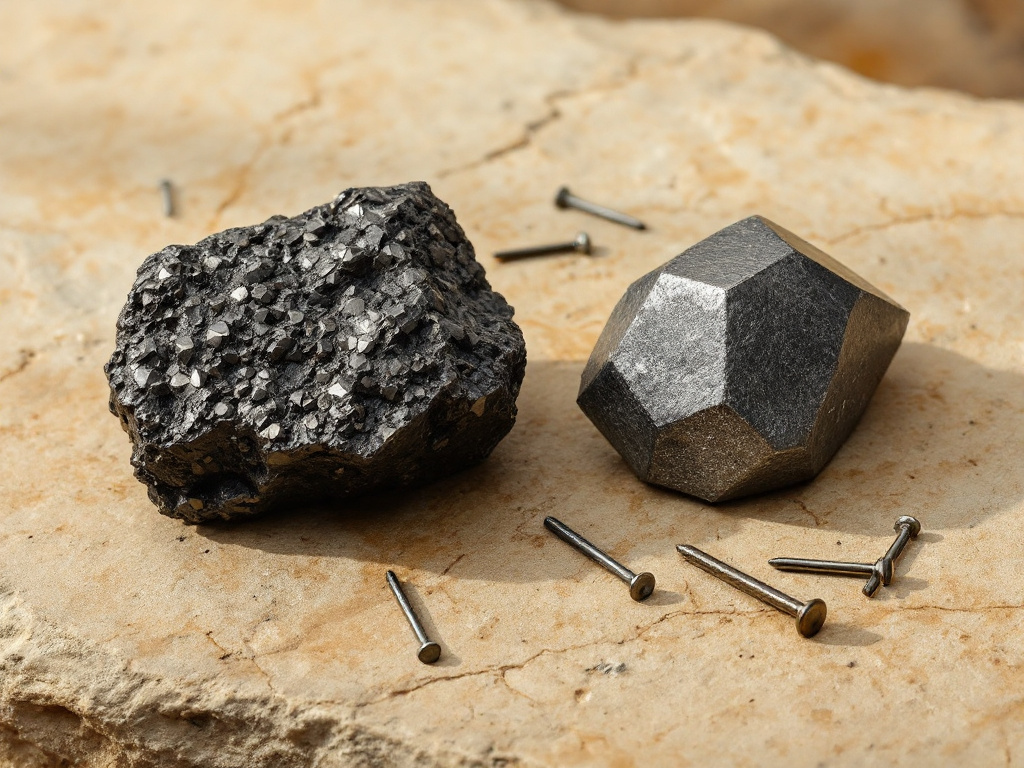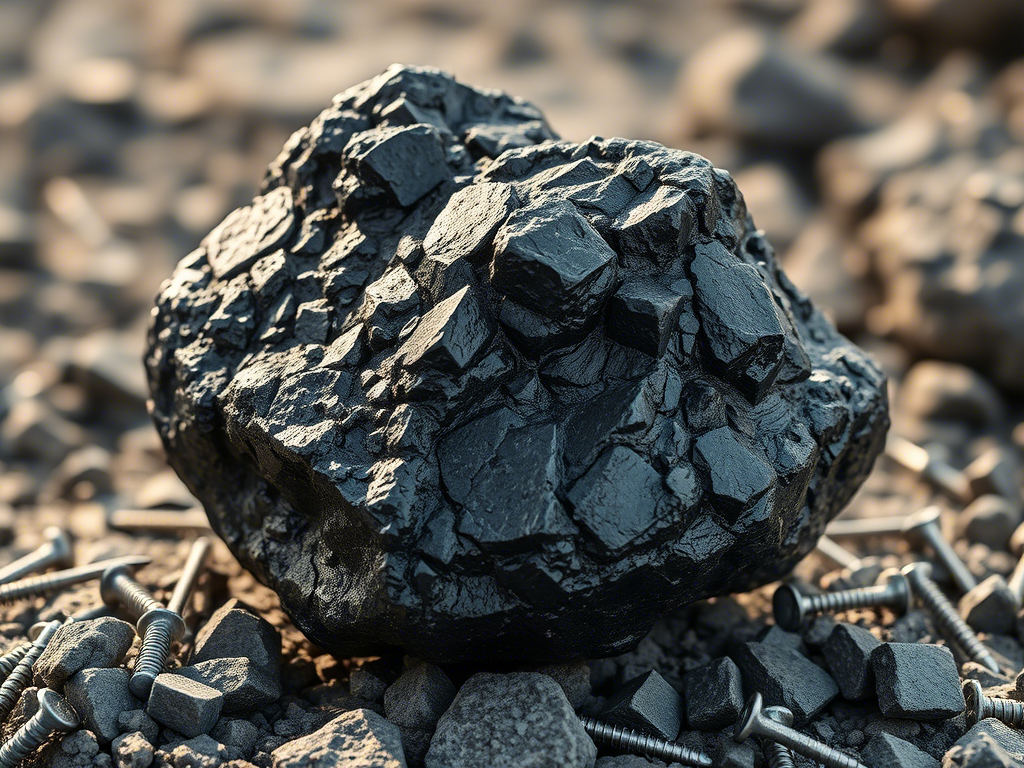Discover the secrets of magnetite, nature’s magnetic wonder! Learn how to identify genuine magnetite, its unique properties, and why it’s a must-have for gem collectors. Explore expert tips, tools, and how to start your collection today!
What Is Magnetite? Unlocking Nature’s Magnetic Mystery
Magnetite (Fe₃O₄) is an iron oxide mineral known for its powerful magnetic properties. As one of the oldest naturally magnetic materials, it’s both a geological marvel and a prized collector’s item. This black, metallic mineral often attracts iron objects, making it a fascinating specimen for enthusiasts and gemologists alike.
How to Identify Real Magnetite: Expert Techniques
Spotting genuine magnetite requires a keen eye and simple tools. Here are the key characteristics:
- Color: Black or dark brown with a metallic luster.
- Magnetism: Strong attraction to iron—test it using common nails or paper clips.
- Density: Ranges from 5.0 to 5.2 g/cm³—denser than most minerals.
- Crystal Structure: Often cubic with octahedral faces.
✅ Pro Tip: Use a Gemologist-Approved Magnetic Testing Kit for accurate identification at home.
The Fascinating History of Magnetite: From Ancient Myths to Modern Science
Magnetite’s magnetic properties were first observed in ancient Greece, where it was named after the region of Magnesia. Legends suggest that early Chinese navigators used lodestones (natural magnets) for navigation. Today, magnetite is a key material in modern electronics and magnetic therapy.
Where to Find Magnetite: Global Hotspots for Collectors

Premium-quality magnetite is sourced from renowned geological sites worldwide:
- Sweden & Norway: Home to some of the purest deposits.
- USA: Notable finds in Minnesota, Wisconsin, and New Jersey.
- Russia: Rich magnetite deposits in the Ural Mountains.
🌍 Insider Tip: Explore Geological Field Kits to start your magnetite hunting adventure!
Why Magnetite Is a Must-Have for Gem Collectors
Magnetite isn’t just a scientific curiosity—it’s a prized addition to any gem collection due to its:
- Unique Magnetic Properties: A natural demonstration of Earth’s magnetic forces.
- Historical Significance: Used in ancient navigation and early compasses.
- Aesthetic Appeal: Striking black crystals with metallic luster.
Magnetite vs. Other Magnetic Minerals: Key Differences
| Property | Magnetite (Fe₃O₄) | Hematite (Fe₂O₃) | Lodestone |
|---|---|---|---|
| Magnetism | Strong | Weak to none | Strong (natural) |
| Color | Black, metallic | Reddish-brown | Black, metallic |
| Density (g/cm³) | 5.0 – 5.2 | 5.26 | 5.0 – 5.2 |
| Crystal Structure | Cubic, octahedral | Hexagonal | Irregular masses |
Tools You Need to Identify and Collect Magnetite
Ready to start collecting? Equip yourself with these must-have tools:
- Magnetic Testing Kit – Shop Now
- Geologist’s Field Kit – Order Yours
- 10x Loupe Magnifier – Buy Here
FAQ: Your Magnetite Questions Answered
Q: How can I tell if my magnetite is real? A: Test it with a magnet—real magnetite will attract iron objects. For precise results, use a magnetic testing kit.
Q: Is magnetite valuable? A: While not as precious as diamonds, high-quality magnetite specimens are sought after by collectors and can fetch a premium price.
Q: Can I find magnetite in my backyard? A: It’s possible! Areas rich in iron deposits, especially near volcanic regions, are prime spots to discover magnetite.
What’s Next? Discover Rare Magnetic Wonders
Stay tuned—next, we’ll reveal how to spot fake lodestones and where to find the world’s largest magnetite crystals.
🔔 Subscribe Now to get exclusive gem-collecting secrets straight to your inbox!

